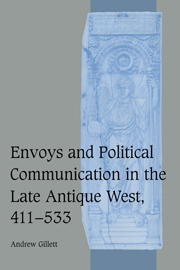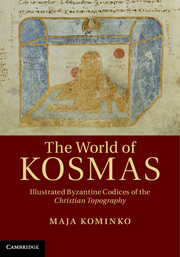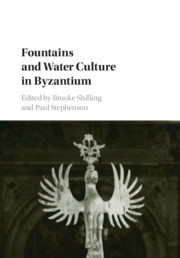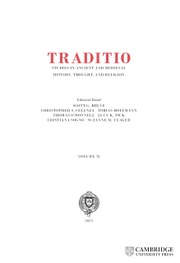Envoys and Political Communication in the Late Antique West, 411–533
Warfare and dislocation are obvious features of the break-up of the late Roman West, but this crucial period of change was characterized also by communication and diplomacy. The great events of the late antique West were determined by the quieter labours of countless envoys, who travelled between emperors, kings, generals, high officials, bishops, provincial councils, and cities. This book examines the role of envoys in the period from the establishment of the first 'barbarian kingdoms' in the West, to the eve of Justinian's wars of re-conquest. It shows how ongoing practices of Roman imperial administration shaped new patterns of political interaction in the novel context of the earliest medieval states. Close analysis of sources with special interest in embassies offers insight into a variety of genres: chronicles, panegyrics, hagiographies, letters and epitaph. This study makes a significant contribution to the developing field of ancient and medieval communications.
- Significant and comprehensive study of fifth- and early sixth-century barbarian, and early medieval kingdoms
- Analyses historical and literary works in a variety of genres - chronicles, panegyrics, letters
- Wide-ranging appeal across ancient history, literature and communications/diplomacy in the pre-modern world
Reviews & endorsements
"...well produced in every way...[a] most useful contribution to the political history of a complicated if not badly documented era...a worthy publication." Edward N. Luttwak, Center for Strategic and International Studies
" [A] well written and most useful contribution." Bryn Mawr Classical Review
"Not only a very scholarly book, but one which is remarkable for the clarity and thoughtfulness of its subject matter and approach." - Mouseion David F. Buck, University of Prince Edward Island
"The great strength of this book is precisely that Gillett's topic does not confine him to a single event or set of documents. The result is that it overturns comfortable assumptions about the prevalence of political communication in this period. Gillett has demolised the cheif one, that is rarely occurred, and has put forth an important corollary: if political communication was, in fact, more common than assumed, then scholars have also erred by assigning too much importance to embassies that do receive mention in the sources...There is less chance taht this mistake will be made in the future, thanks to this book." - H.A. Drake, University of California, Santa Barbara
Product details
September 2003Hardback
9780521813495
364 pages
229 × 152 × 24 mm
0.733kg
2 maps 3 tables
Available
Table of Contents
- Preface
- 1. Embassies and political communication in the post-imperial world
- 2. The provincial view of Hydatius
- 3. The hero as envoy: Sidonium Appollinaris's Panegyric on Avitus
- 4. The saint as envoy: fifth and sixth century Latin bishops' Lives
- 5. Cassiodorus and Senarius
- 6. Negotium Agendum
- Conclusion
- Appendices
- Bibliography.







.jpg)
.jpg)
